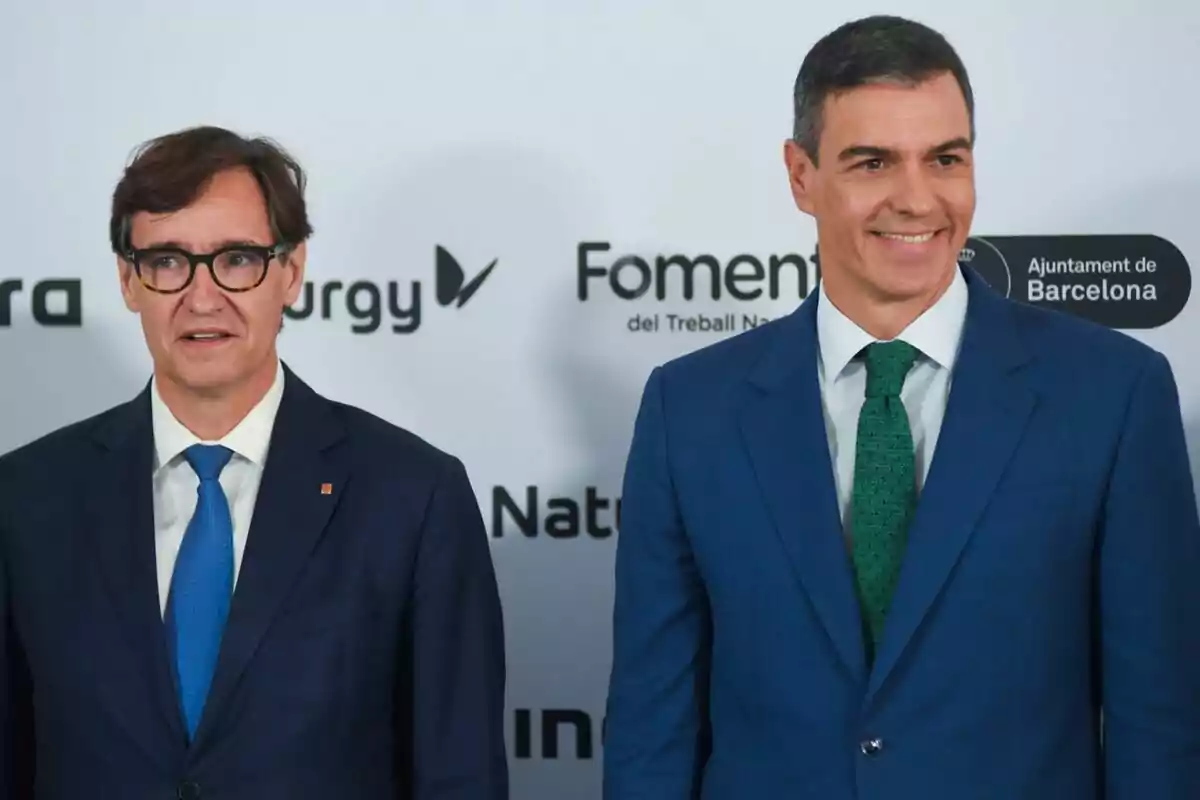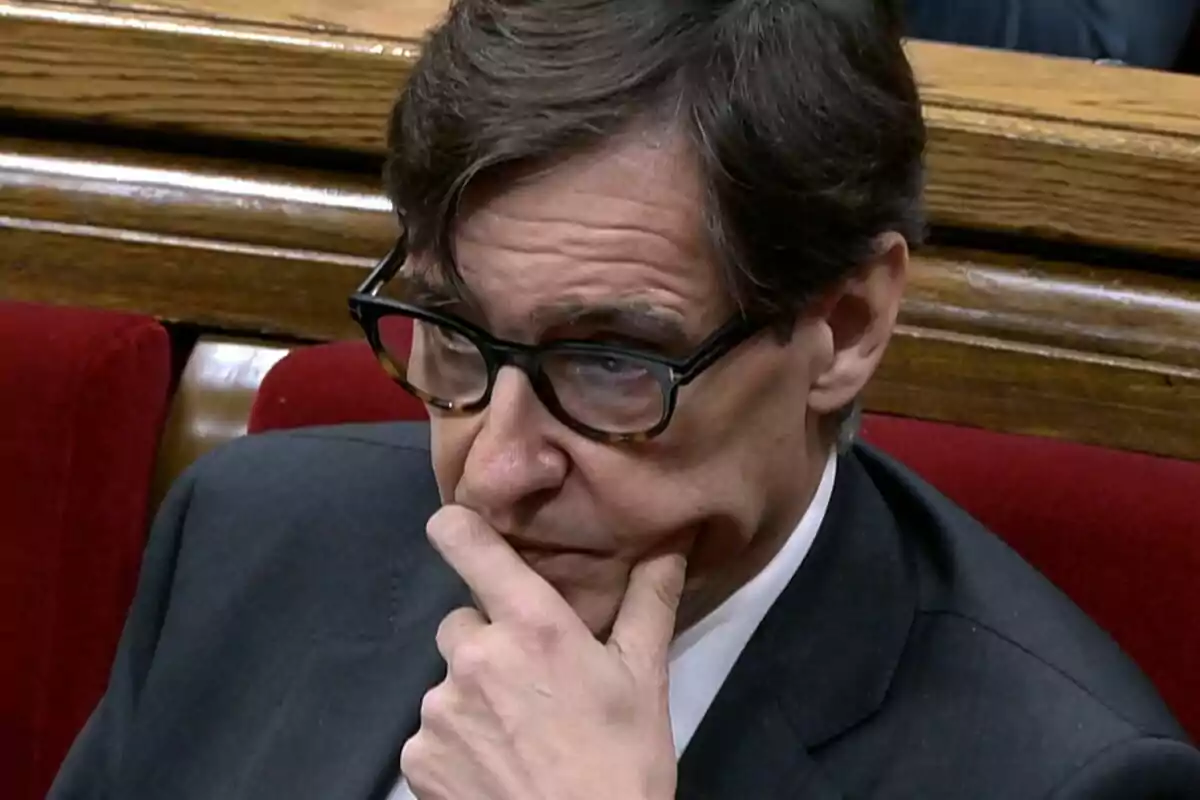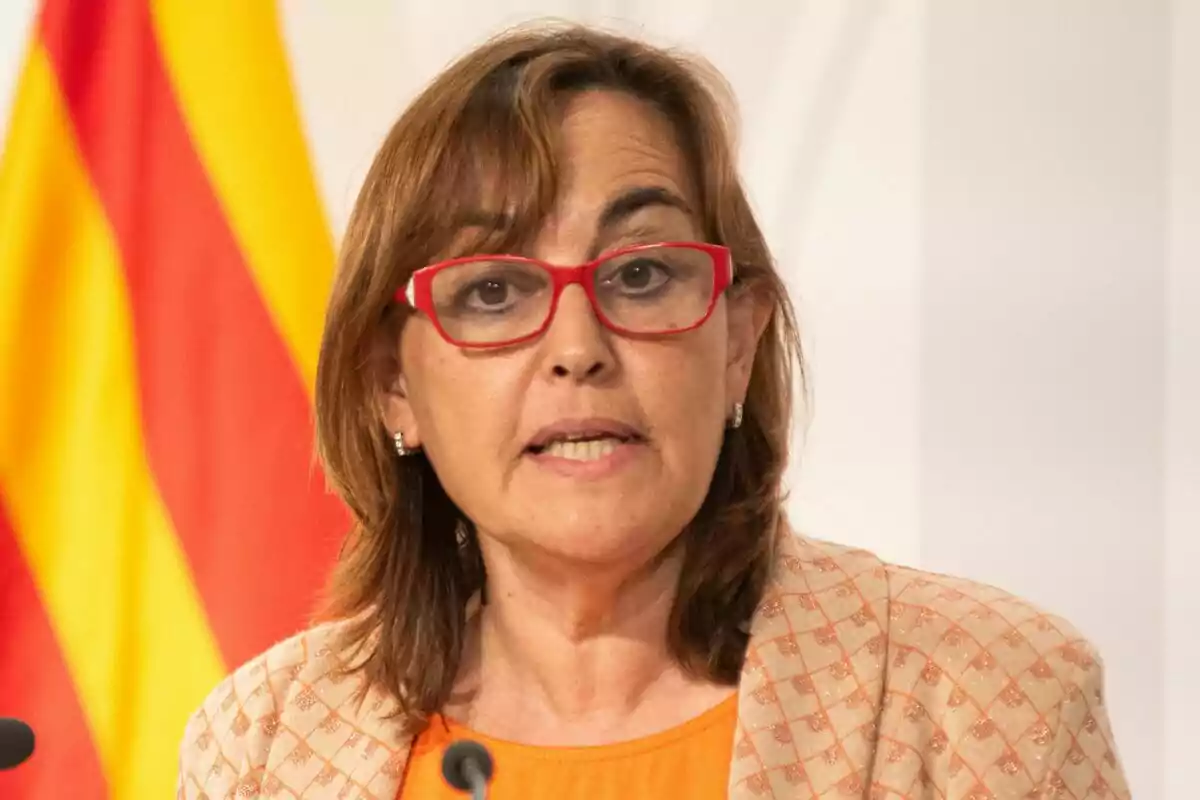
The agreement on funding in Catalonia sparks the first clash between PSOE and PSC
The balancing acts that socialists have to perform to please everyone are becoming increasingly difficult to manage
For years now, the differences between PSOE and PSC have been minimal, if not nonexistent. During the eras of Pasqual Maragall and earlier, Catalan socialists enjoyed a certain (albeit timid) autonomy and a somewhat distinct profile. However, this disappeared in recent political cycles.
This change began to take shape in the years leading up to the procés, even with José Montilla as the leader of the socialists in Catalonia. Now, PSC's mimicry of PSOE is absolute.

Salvador Illa was not only a minister under President Pedro Sánchez, but he is also one of the people most trusted by the current president of the Government. Jordi Hereu is part of the Council of Ministers, heading the Industry portfolio. Montse Mínguez is currently the spokesperson for PSOE's Federal Executive. We could continue with several more examples (Meritxell Batet, Miquel Iceta...).
Undoubtedly, if President Pedro Sánchez is president, it is largely thanks to PSC and their strong results in Catalonia in the most recent elections. They have all acted in unison and, surely, Sánchez would not hold his current position without PSC, and Salvador Illa would not hold his current position without President Pedro Sánchez.
First clash between PSOE and PSC
However, this idyll has now suffered its first clash. It doesn't amount to a crisis and will not put their relationship at risk. But the balancing acts they must perform, some in Parliament and others in Congress, have caused the first cracks among socialists.

The new funding model agreed upon between the Government and the Govern has been the culprit. Specifically, the section on ordinality. This section dictates that if an autonomous community is first on the list in terms of fiscal effort, it must be first on the list of those that receive the most.
It is a clause that PSC argues is included in the agreement with the Government. However, the Government says that this is not exactly the case. From Salvador Illa's Executive, they assert that the agreement "provides guarantees of ordinality," stated spokesperson Sílvia Paneque. Her counterpart in Madrid, Pilar Alegría, makes it clear that this concept appears only in the preamble and that "solidarity" must come first. In other words, she refuses to accept the theory defended by her Catalan colleagues.
This disparity of opinions could cause a problem for the socialist family. Whether in Parliament or in Congress. If there is ordinality (which de facto means that a limit will be placed on Catalan solidarity), the autonomous communities will rise up. No matter how much the Government says that this agreement can be extrapolated to other communities and that everyone will benefit, there is no magic. If one contributes less, someone will receive less. That is not to mention that not only will the regional governments fight this scenario. President Pedro Sánchez's partners such as Compromís or Chunta Aragonesista (within Sumar) or Podemos have already said they will not give their approval to the measure.
If, on the other hand, ordinality remains in the preamble and is simply a statement of intent, ERC has already said they are willing to block the budget. Both in Catalonia and in Congress. Meanwhile, Junts has already expressed opposition to the Government-Govern agreement from the very beginning.
Thus, the socialists have a major hot potato on the table. That is what happens when you try to please everyone. The balancing acts have their limits. In the end, one of two things will happen: either the differences between PSOE and PSC will worsen (which is unlikely) or one of the two will give in. Of course, this decision will have consequences regarding the many partners that both President Pedro Sánchez and Salvador Illa must please.
More posts: